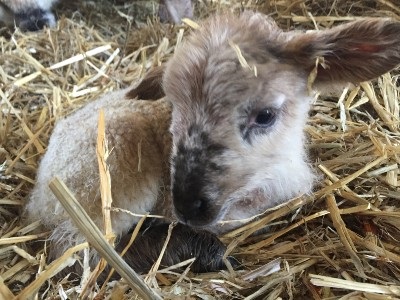Stay Clean, Stay Safe
31 March 2021Most farmers will be aware that sheep and lambs can carry organisms which can be responsible for disease in humans. The specific threat to pregnant women from aborting sheep at lambing time is probably the most familiar issue. However, sheep can also carry organisms which could make anyone unwell, and it’s sensible to consider these risks as you go about your work.
Potential infections can be categorised as follows (there is overlap between these categories):
- those which are particularly harmful in pregnancy, such as Chlamydia (EAE), Toxoplasma, Listeria and Coxiella (Q fever).
- those which can cause food-poisoning type symptoms, such as Campylobacter, Salmonella, coli and Cryptosporidium. As well as unpleasant digestive upsets, these can sometimes cause more serious disease.
- those which can affect the skin, such as parapox virus (orf) or fungal infections (ringworm).
Often these infections are not visible to the naked eye, and can gain entry via the skin or mouth after contact with an animal carrying the disease. Children, people with underlying health conditions, or those taking immunosuppressive medication have an increased likelihood of developing these kinds of infections.
In most cases, simply observing good hygiene will keep these risks to a minimum:
- Wash your hands thoroughly with soap and water after handling animals.
- If handwashing facilities aren’t readily available, use hand sanitising gel.
- Always wash your hands thoroughly before eating or handling food.
- Keep your hands moisturised to prevent chaps or cracks in the skin – this is especially important at lambing time and in cold weather.
- Use gloves if you have broken skin when examining or assisting lambing ewes. This protects both you and the sheep.
- Observe extra hygiene precautions when working with sick ewes or lambs: use gloves when handling them, dispose of any contaminated bedding carefully, and ensure vulnerable people are not involved with their care.
- If you become unwell, tell the doctor about your contact with livestock.
Eilidh Corr, Eilidh.Corr@sruc.ac.uk
Sign up to the FAS newsletter
Receive updates on news, events and publications from Scotland’s Farm Advisory Service

